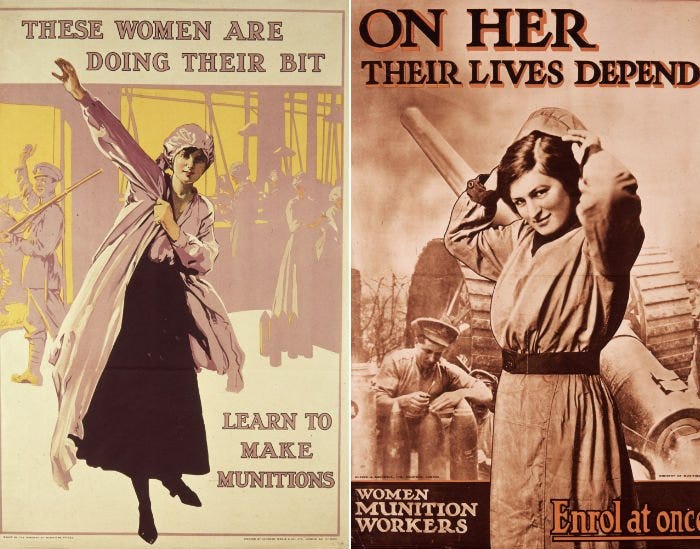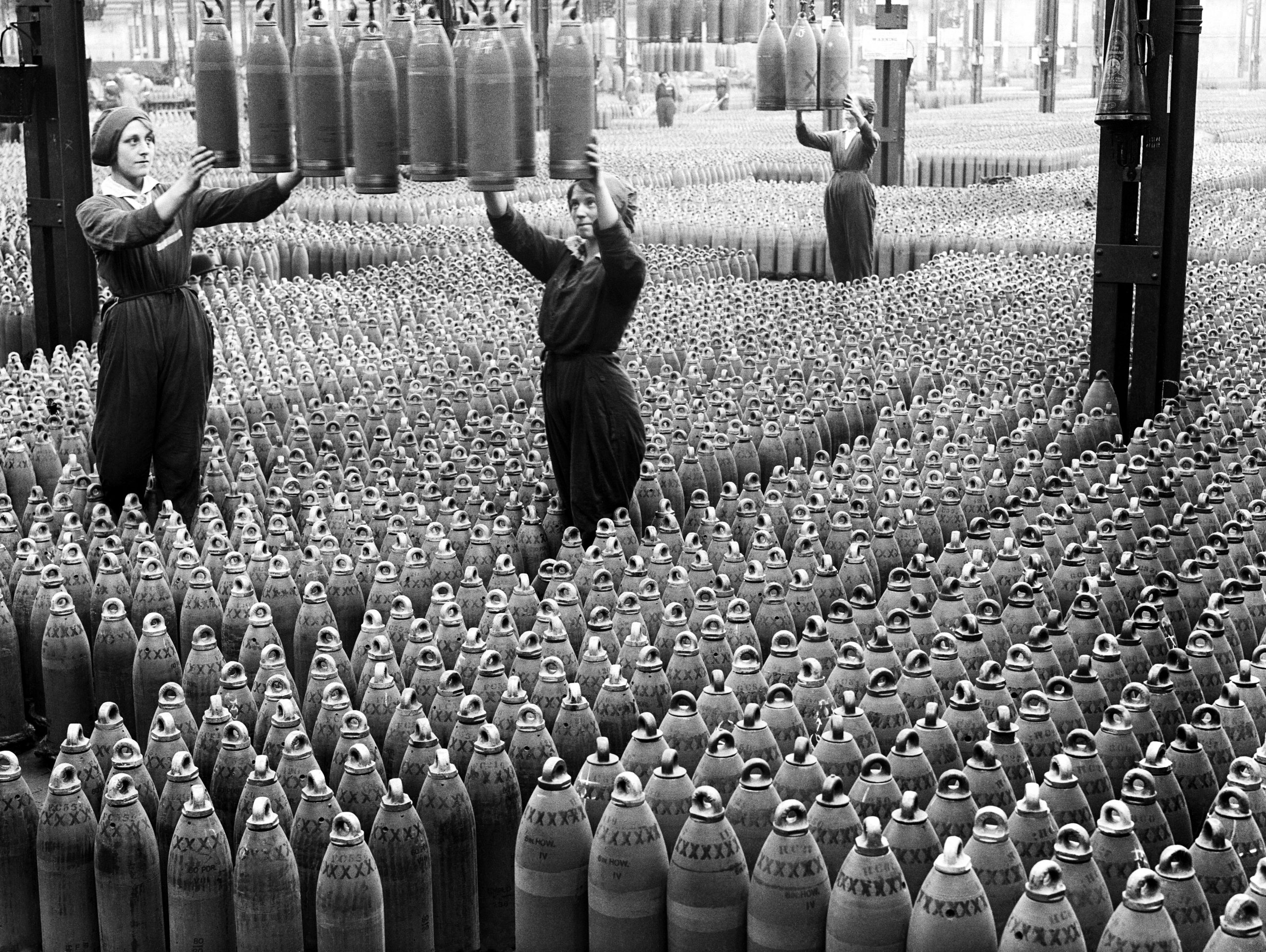 ith the breakout of World War 1, most of the men within Great Britain were sent off to war, not only leaving their posts in factories which the British economy was depending on but also leaving their wives and children with nothing to eat. As this war was unforeseen, it created a major demand for weapons and ammunition. Once the war had been ongoing for about a year and the Allied army understood its real dimensions, the real heavy-duty demand came in, with most automated factories within Britain being turned into war factories (factories used to manufacture war supplies like weapons, ammunition, uniforms, and others).
ith the breakout of World War 1, most of the men within Great Britain were sent off to war, not only leaving their posts in factories which the British economy was depending on but also leaving their wives and children with nothing to eat. As this war was unforeseen, it created a major demand for weapons and ammunition. Once the war had been ongoing for about a year and the Allied army understood its real dimensions, the real heavy-duty demand came in, with most automated factories within Britain being turned into war factories (factories used to manufacture war supplies like weapons, ammunition, uniforms, and others).
The birth of Canary girls
With almost 10 million men over the age of 18 having been sent to war, there was only one human resource left to use for supplying this war. Women at the time were not very welcomed in the “heavy-duty” industry as equality between genders was still a taboo topic at the time. Many historians do argue that the urgent need for women to work in war factories helped the women’s equal rights movement in 1928.
With no other option available, the women had to work in intense labor as it was the only way they were able to support their men on the front, as well as feed their children.
However, in this whole story, there was quite a specific branch of women who besides working in intense labor, risked their lives by producing ammunition for artillery, also known as howitzer shells. These shells came in different sizes depending on the required caliber but were all filled with the same explosive substance, Trinitrotoluene (commonly known as TNT). At the start of the 20th century, this substance was proven to be very toxic.
The constant exposure to this toxic explosive substance turned the workers’ skin into a bright orange shade, this is why the women working with it were nicknamed the “Canary Girls”. The women working in these war factories were persuaded to stay by the high-paying salary, double what a common man would receive working the same job. At the time, women were still being paid less than men, so this was not only a nice change but also a very attractive offer.
Consequences suffered by the Canary Girls
As the war evolved, the demand became higher and higher with artillery being one of the main weapons used in trench warfare. These girls ended up working more than 14 hours a day, and by 1917, the demand was so high that war factories were even hiring 14-year-old girls to produce munition.

All this meant even more exposure to TNT. After the war, many newborn babies were reported to be born with an orange skin pigment, indicating how toxic the substance really was. At an older age, Canary women complained of health problems that have been diagnosed to hail from the toxic substance they had worked with for a period of four years.
When recruited they were told lies from day one by employers who stated that the working environment was safe and that the orange pigmentation would disappear over time, but it never did.

However, there were bigger problems. Besides an increasing number of deaths due to exhaustion in 1918, there was a major incident in the National Shell Filling Factory №6, near Chilwell, where some explosives detonated, causing the death of 130 women. It is said that during World War 1, two women died every week in war factories due to work accidents or intoxication with chemical substances.
These women were shackled by the thought of their husbands relying on the ammunition and weapons they were producing. Despite the deplorable working conditions they had to keep going if they wanted their husbands as well as sons to come home as soon as possible.
Avid Writer with invaluable knowledge of Humanity!
Upcoming historian with over 30 million views online.
“You make your own life.”





